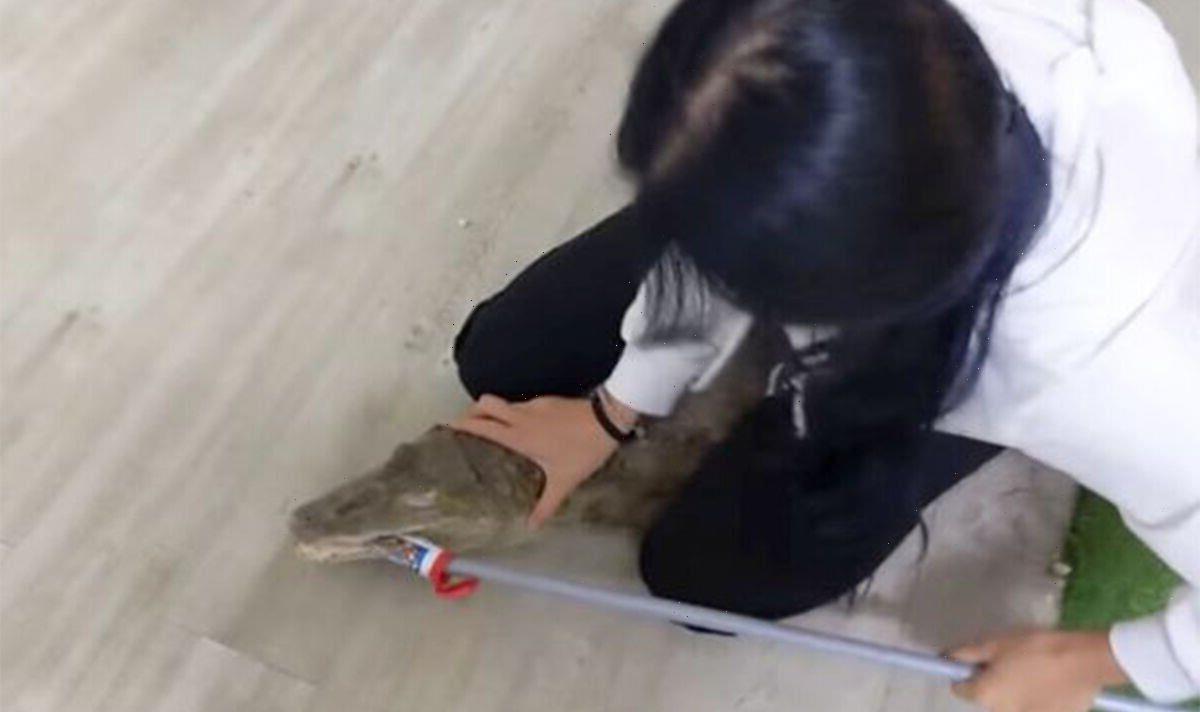The person you’re dating nips out to the shops and leaves their phone behind. You know you’ve got a good 15 minutes. What do you do?
Are you an emotionally healthy, super trusting person, who doesn’t even notice the phone’s been left behind – let alone consider looking through it?
Or do you feel that phone’s presence looming large in your peripheral vision? Does it call out to you, begging to have its passcode (which you know already, because you’ve seen your partner type it in) tapped and its contents perused?
We all know that snooping through someone’s phone, laptop, diary, or whatever other personal item, is wrong. It’s a total violation of privacy and crosses all sorts of boundaries.
But when you’re experiencing trust issues, insecurity, or anxiety, the siren call of your other half’s screen can be too loud and urgent to ignore.
You might want to resist the temptation and respect their personal space – but it’s not so easy. It’s incredibly uncomfortable, in fact, and can make for an intensely stressful, sweaty few minutes while the opportunity to snoop is there.
So how do we deal with this urge? And how do we move past it? We asked the experts.
Why we feel the need to snoop through a partner’s phone
Sex and relationships expert Rhian Kivits says there are some common motivations for feeling tempted to snoop:
- You’re driven by insecurity and a lack of trust, fear that you’ll find something that suggests disloyalty, and feel a need to prove yourself right
- You sense a distance from your partner and want to delve into their private space to create a sense of intimacy
- You’ve been betrayed previously and fear it happening again, so snoop to find reassurance
- You genuinely have reason to believe your partner is being disloyal and snoop in order to confirm your suspicions
‘In a trusting, mature relationship, it probably would never occur to you to check through your partner’s phone,’ notes Michelle Begy, of Ignite Dating. ‘If you find yourself battling the urge, it’s likely that you’re insecure from being cheated on in the past and subsequently have trust issues, or that your current partner has given you reason to feel suspicious.’
Why you should never snoop through a partner’s phone
You probably know this already, but just in case, let’s go through why snooping is a bad, bad idea.
‘It can break trust and boundaries,’ explains relationship expert Ness Cooper. ‘Every relationship has boundaries and listening to those is important.
‘It can be a sign of a narcissistic relationship and unhealthy control. This can limit the relationship and prevent it from growing positively.
‘There may also be unhealthy codependency going on, meaning that individual
identities are lost.’
‘Someone’s phone/laptop is their private space,’ adds Rhian. ‘When you snoop, you violate their privacy and feed into your own insecurity. You breach the trust between you.
‘Ironically, you’re proving that you can’t be trusted and the fact you’ve snooped ends up becoming a secret that you’d probably be quite embarrassed about if your partner found out.
‘It can create mutual mistrust, feed resentment and perpetuate disconnection in relationships. Your partner may feel like they’re not free or fear that you’re judgmental towards them.
‘If you snooped because you’re suspicious or insecure and your partner finds out, you could be creating a self-fulfilling prophesy whereby they push you away and you end up feeling even more insecure when really you desired reassurance.’
How to resist the temptation to snoop
First, take a minute to ask yourself why you want to snoop – is it for one of the reasons we mentioned above? Is there a bigger issue that needs resolving, such as poor communication or insecurity?
When you’re overwhelmed by the urge to take a peek, it can help to remove yourself from the situation. Don’t feel silly for needing to move to a room that doesn’t have your partner’s phone in it. Go and do something to occupy and distract your mind, whether that’s watching something super gripping on TV or calling a friend.
In the moment, challenge your thoughts. Is there any logical basis to what your brain is telling you? Or are you projecting past bad experiences on to a partner who has been lovely? Are you doing worst-case-scenario thinking?
‘If you’ve snooped on a previous partner’s phone or laptop and found something that’s hurt you, you could find yourself unable to trust your current partner because you’re telling yourself that you’ll always be betrayed,’ explains Rhian.
‘It can help to remind yourself that this isn’t a logical way of thinking.
‘Just because it happened in the past, it doesn’t mean it’s going to happen again. The past has no bearing on the future. In addition, it’s not fair to judge your current partner by the standards of your ex.
‘This is a different relationship and you are dealing with a different person.’
Michelle adds: ‘If the urge develops, ask yourself whether it’s simply out of your own insecurity. If it is, then spend the time more constructively by examining and processing past failed relationships either on your own or with the support of a therapist.
‘Plus, if your partner has given you cause to think they’re cheating, it’s best to get the facts from them directly, rather than jumping to conclusions from their phone activity.
‘Longer term, it’s worth remembering that if you feel your partner is cheating, they’ll do so whether or not your check their phone and in the long run, the only person it will hurt is you.
‘Make a pact with yourself, firstly to adopt open and honest communication with your partner and secondly to seek professional help in order to learn trust in relationships again.
‘Couples counselling may also help, if your partner is agreeable.’
How to talk to your partner about snooping
Something all our experts recommend when it comes to tackling the snooping urge? Boost your communication within your relationship.
Often, feeling like you need to nose around comes from a lack of connection, or bad communication. The way to fix that is pretty simple – talk about it!
‘It can be helpful to talk to your partner and share your feelings because it may be that improving communication and trust within the relationship will help you feel more secure,’ says Rhian. ‘Relationship experts and therapists can help you work through the issues if you can’t do it alone.
‘It can help to come clean with your partner about the fact you’re tempted to snoop.
‘In fact, just by being honest about your feelings, you may find the craving doesn’t feel so strong. When we share our feelings we build trust.
‘You may also reveal the fact that you would benefit on working together to establish deeper trust as a couple.
‘You might agree that it would be helpful for your partner to be more mindful about where they leave their device for a while, so as to remove the source of temptation, especially if the presence of the phone or laptop is a trigger for a deeper anxiety that you’re working through.
‘In the longer term it would be preferable for your partner not to have this responsibility, but it could be a short-term solution until you’ve learned how to reassure yourself and handle the temptation to snoop.
‘If you do decide to talk to your partner about your temptation to snoop, it can help to explain that you’re not accusing them of anything and that you know your struggle with trust is within you. This demonstrates that you’re taking responsibility for the issue and that you’re aware they’re not the problem.’
Ness backs the idea that coming clean about snooping – or the urge to snoop – can be a positive thing for the relationship.
‘Some individuals may feel internalised guilt and shame and this may prevent them from discussing it with their partner, but more couples I’ve worked with who do, feel better when they talk about snooping habits,’ Ness explains. ‘It can help the couple bond and get to know each other further as well as add reassurance that many relationships need.’
That’s far healthier than getting into the habit of secretly delving into your date’s phone every time they go to the loo, we reckon.
Do you have a story to share?
Get in touch by emailing [email protected].
Source: Read Full Article




